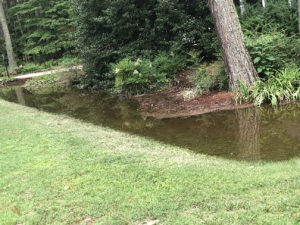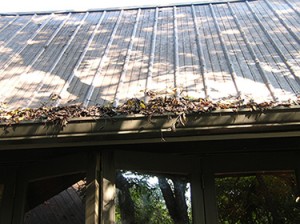Add Mosquitoes to Your Weekend Chores
go.ncsu.edu/readext?716957
en Español / em Português
El inglés es el idioma de control de esta página. En la medida en que haya algún conflicto entre la traducción al inglés y la traducción, el inglés prevalece.
Al hacer clic en el enlace de traducción se activa un servicio de traducción gratuito para convertir la página al español. Al igual que con cualquier traducción por Internet, la conversión no es sensible al contexto y puede que no traduzca el texto en su significado original. NC State Extension no garantiza la exactitud del texto traducido. Por favor, tenga en cuenta que algunas aplicaciones y/o servicios pueden no funcionar como se espera cuando se traducen.
Português
Inglês é o idioma de controle desta página. Na medida que haja algum conflito entre o texto original em Inglês e a tradução, o Inglês prevalece.
Ao clicar no link de tradução, um serviço gratuito de tradução será ativado para converter a página para o Português. Como em qualquer tradução pela internet, a conversão não é sensivel ao contexto e pode não ocorrer a tradução para o significado orginal. O serviço de Extensão da Carolina do Norte (NC State Extension) não garante a exatidão do texto traduzido. Por favor, observe que algumas funções ou serviços podem não funcionar como esperado após a tradução.
English
English is the controlling language of this page. To the extent there is any conflict between the English text and the translation, English controls.
Clicking on the translation link activates a free translation service to convert the page to Spanish. As with any Internet translation, the conversion is not context-sensitive and may not translate the text to its original meaning. NC State Extension does not guarantee the accuracy of the translated text. Please note that some applications and/or services may not function as expected when translated.
Collapse ▲With odds increasing that Tropical Storm Isaias will hit some part of coastal North Carolina, we can expect some flooding in low lying areas and drainage ditches that may still be clogged with debris and silt build-up from previous storms. Those conditions can translate to becoming mosquito breeding sites.
So, your list of weekend chores should include unclogging those sites and let any standing water drain out as much as possible before they start attracting even more mosquitoes. If you have concrete culvert running under your driveway (as seen in the picture above) that is clogged with soil, it can be cleared with a marvelous invention called “a shovel”. Try it this weekend. For areas that are too large or too difficult to drain readily, try adding a Mosquito Dunk to slow another generation of mosquitoes from developing there. If you are in an area where heavy rains are expected, hold off on using the Dunk until after the rain ends; otherwise, the particles it will likely get flushed away along with hatching mosquitoes. Also, remember that even though Mosquito Dunks are convenient and effective, they are not a long-term solution to mosquitoes (or an excuse not to do something else). It helps to look at where water is impounded and see if there is a way you can address that problem in a more permanent way as well. One site that can often go unnoticed are roof rain gutters. They become clogged with leaves and debris that often accumulates on the roof until the next rainstorm. Removing that debris keeps the gutters from trapping water.
Last but not least – don’t forget to wear insect repellent while you’re working outdoors!




